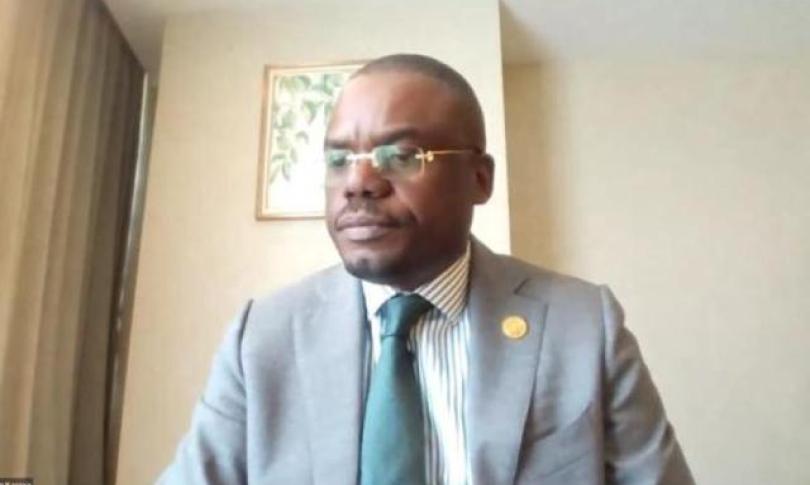
Addis Ababa, Ethiopia - Africa has declared the outbreak of Mpox a Public Health Emergency of Continental Significance in a bid that sets the tone as to how grave the situation is. WHO followed suit by declaring Mpox a Public Health Emergency of International Concern, or PHEIC. These twin declarations reveal an urgent need for a coordinated response across Africa through the African Union spearheaded by the Africa CDC working in collaboration with WHO and global partners.
Cases of Mpox in Africa have continued to increase within the last three years due to increased human-to-human transmission and capacity for weak responses. Various outbreaks have taken place in a number of clades: these include Clade 1a, which, being endemic in central Africa, has now spread to countries such as DRC and CAR. Besides, this is very critical as more than half of the reported cases are of under five years of age.
A new clade, Clade 1b, emerged in South Kivu, DRC, in September 2023, and further exacerbated the crisis to where it is today, with cases now spreading in and outside Africa, including Sweden and Thailand. Cumulatively, Africa has recorded 23,000 suspected cases with 622 deaths as of September 1, 2024.
Besides the alarming spread, response practices in Africa have been weakened due to poor surveillance, limited capacities at the laboratories, and weak infection prevention practices. Very limited vaccines and treatments add to the challenges, while overall public awareness and community involvement remain very low in many parts of the affected regions.
To fill these gaps, the Africa CDC-led, with the WHO, secured 99,100 doses of JYNNEOS Mpox vaccine. Another 100,900 will arrive in early September. More vaccine pledges from countries such as France, Germany and Japan remain under negotiations. The DRC alone will need up to 3.5 million doses.
While the WHO has not yet approved any vaccine against Mpox, Africa CDC is clearing and fast-tracking regulatory pathways. In turn, some countries like Nigeria and DRC began using vaccines JYNNEOS and LC16 under emergency regulations.
Africa CDC and WHO, against the growing crisis, developed a robust Mpox Preparedness and Response Plan for the continent. Its focus is to enhance coordination and leadership, risk communication, community engagement, and surveillance. Other major areas include case management, infection prevention and control, vaccination rollout, and research and innovation.
The response plan defines targeted efforts for four risk-based categories of member states, respectively, including: countries with sustained transmission, or sporadic cases, or endemic reservoirs; and countries at risk of cross-border transmission.
What is required is an immediate, unified response from the globe to address the Mpox crisis in Africa. The estimated cost of response to Mpox between September 2024 and February 2025 is US$599 million. More than half of this budget will go to the response in the most affected 13 African countries, with the rest going into operational and technical collaboration with international partners.
In turn, Africa CDC has outlined a response plan for six months costing close to $600 million. Much of the funding would go toward the 13 most Mpox-affected countries in Africa, while the rest would be utilized for technical and operational support through global partnerships. Dr. Kaseya made this clarion call:
Where we don't have immediate resources, we struggle to contain Mpox. It has become quite urgent that we take action right now if we want to save lives and avoid more outbreaks.
This money will be utilized in which key gaps within Africa's health systems are to be identified and where sustained effort is made to contain the outbreak. As the Mpox virus outbreak wears on, it has become increasingly clear that what is needed to protect lives and ensure a healthier future for Africa against a continued and increasing threat is a well-coordinated and adequately funded response.
Africa CDC and WHO have taken the lead in mounting a coordinated response to the outbreak. The approach is three-pronged, with the strategy targeting leadership, information, and community engagement. For example, this is expected to translate into improved tracking of the virus, enhancements in laboratory testing, and an increase in vaccination efforts.
Dr. Matshidiso Moeti, WHO Regional Director for Africa, said, "These are the elements of cooperation that must be developed to improve national capacities against disease outbreaks.
This outbreak shows the need for solid partnerships. Intensified coordination at the level of African countries and global partners is required to keep Mpox under control. A joined-up approach is our best chance to stop the spread."
The European Union is equally intervening to help curtail the spread of the disease. Laurent Muschel, Director General of the Health Emergency Preparedness and Response Authority-Hera, confirmed this at the joint meeting.
"Europe is committed to supporting Africa in this crisis. We have already provided vaccines, and more will follow. Global health security depends on helping those who need it most."
